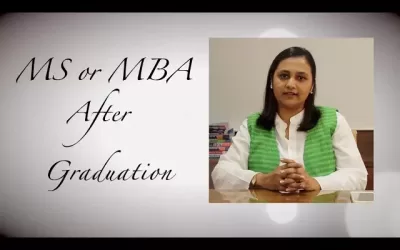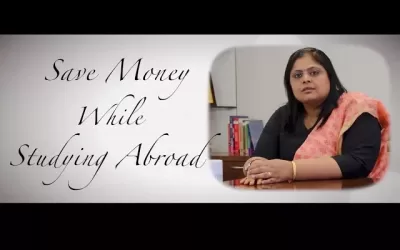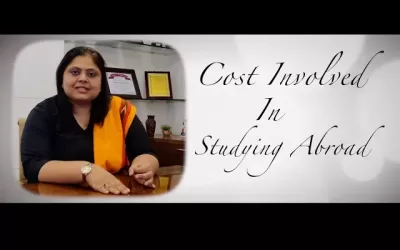 Your Ultimate Guide for Studying Abroad
Your Ultimate Guide for Studying Abroad
Many students want to Study Abroad and yet there are still some misconceptions in the minds of parents and students. In this episode, Suchitra Surve speaks about the basics of going abroad to abroad. Students seeking education abroad consulting Mumbai can approach Growth Centre for professional guidance.
Typically, students go abroad for undergraduate and postgraduate courses. The USA has always been a preferred destination along with the UK, Australia, New Zealand, Canada, and Singapore. Europe, Hong Kong, China, and Russia are some of the emerging destinations. Students choose to study abroad for better international exposure, courses, infrastructure, and research facilities and to make international friends
The popular courses that students opt for are Engineering, Computer Science, Business Management, and Research courses. Courses like Physiotherapy, Sports therapy, Occupational therapy, Medical Research, Biotechnology, and Management are also chosen by students. One needs to understand and research the pathways, opportunities, and placements and then choose the course, country, university, and prepare for the required entrance exam and accordingly start the application process.
Frequently Asked Questions For Guide for Studying Abroad
1. What are the benefits of studying abroad?
Studying abroad offers numerous advantages, including exposure to new cultures, languages, and perspectives, academic and career opportunities, personal growth, and the chance to build a global network.
2. How do I choose the right destination for studying abroad?
The choice of destination depends on your academic interests, career goals, budget, and personal preferences. Research universities, programs, and countries that align with your objectives.
3. What are the key steps to prepare for studying abroad?
Preparing to study abroad involves researching programs, securing funding, obtaining necessary visas, and ensuring you meet academic and language proficiency requirements. A comprehensive checklist is essential.
4. How can I find scholarships and financial aid for studying abroad?
Scholarships, grants, and financial aid are available from universities, government agencies, and private organizations. Explore scholarship databases, contact your university’s financial aid office, and research government-sponsored programs.
5. What language requirements do I need to meet for studying in a foreign country?
Language requirements vary by country and program. Some universities may require proficiency in the local language, while others offer programs in English. Take language proficiency tests like TOEFL or IELTS if needed.
6. How can I adapt to a new culture when studying abroad?
To adapt to a new culture, be open-minded, immerse yourself in local customs, and engage with the community. Join clubs, attend cultural events, and learn about the country’s history and traditions.
7. What are the essential documents I need when studying abroad?
Essential documents include your passport, visa, acceptance letter from the university, financial documentation, and any required health or travel insurance.
8. How do I ensure my health and safety while studying abroad?
Prioritize your health and safety by researching local healthcare services, obtaining necessary vaccinations, following safety guidelines, and registering with your country’s embassy or consulate.
9. What resources are available for international students on campus?
Most universities offer resources for international students, including orientation programs, academic advising, counseling services, and student organizations that cater to international communities.
10. How can I manage the challenges of homesickness and culture shock?
Homesickness and culture shock are common experiences when studying abroad. Stay connected with loved ones, seek support from campus resources, and gradually adapt to your new environment to overcome these challenges.
11. Can I work part-time while studying abroad?
Many countries allow international students to work part-time during their studies, but regulations vary. Check the work policies in your host country and adhere to visa regulations.
12. What should I do if I face academic difficulties while studying abroad?
Seek help from professors, academic advisors, or tutoring services if you encounter academic challenges. It’s important to communicate with your instructors and take advantage of available resources.

 Your Ultimate Guide for Studying Abroad
Your Ultimate Guide for Studying Abroad




